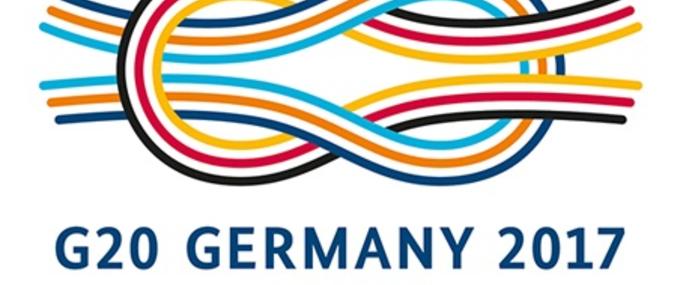The G20 under the German presidency will meet on 7 and 8 July in Hamburg. In a context of tension, particularly following the announcement of the US withdrawal from the Paris Climate Agreement, it is critically important that the Heads of State and Government - at least of the G19 and certainly no less - strongly reaffirm their cohesion and commitment to implement the Paris Agreement and the 2030 Agenda for Sustainable Development. As the French President of the Republic and the Minister of Ecological and Solidarity Transition regularly remind us, the transformation of our development models and solidarity towards the most vulnerable countries are prerequisites for peace and the fight against terrorism. To underline the need for coordination and to show how it should be achieved, IDDRI contributed to the preparation of the G20 by participating in the G20 Insights Initiative, a platform bringing together the proposals of around 170 international think tanks, and has contributed to the F20 Platform, an alliance of foundations and philanthropic organizations.
In March 2017, the meeting of finance ministers from the G20 member countries led to a joint declaration that excluded any reference to the Paris Agreement; the foundation stones of the announcement of the American exit had been laid. At the end of May at the Taormina G7, this trend was confirmed, leaving the United States particularly isolated from the other six countries. Then, on 1 June, the official announcement of this diplomatic divorce paradoxically enabled the great powers, as well as many sub-national institutions, to reaffirm their will to act in favour of the ecological and energy transition. Several bilateral initiatives (the EU-China Summit, the EU-Canada-China alliance at the Bonn climate negotiations, etc.) have emerged, aiming to apply new leadership in global climate governance. In this context, the G20 has a decisive role to play in “shaping an interconnected world”, as indicated in the title of the July Summit. This formula refers both to an intentional interconnection and an inevitably increasing interdependence, related in particular to environmental degradation and the impacts of climate change. In this context, cooperation for the management of common goods is paramount. Sustainable development is not merely an additional consideration, but must be a central element of international cooperation. This is the framework of the concrete proposals and recommendations addressed to the G20 by the F20 Platform and the G20 Insights Platform, to which IDDRI is closely associated. Through several Policy Briefs, IDDRI researchers in collaboration with other institutions (which include Brookings, World Energy Council, Chinese Academy of Engineering, IASS Potsdam, IEEP and CIGI) have defined the priorities for research and action to promote a low-carbon and sustainable transition:
- A ranking of country performance in terms of economic inequality, modelled on the international PISA education survey, should be introduced. At the same time, a science-policy forum should be established to enable learning and the sharing of good practices in terms of reducing inequalities.
- To stimulate low-carbon growth, a set of measures should be simultaneously established: increasing sustainable infrastructure, mobilizing sustainable finance, and adopting a carbon price.
- The G20 should establish an independent commission of scientific experts to carry out international monitoring and to provide close support to decision makers in the energy transformation processes that are needed or present in the various G20 countries.
- A joint report by institutions such as the International Renewable Energy Agency (IRENA), the IMF, the OECD, the World Bank and the Task Force on Climate-Related Financial Disclosures should be brought to the attention of the G20 leaders (Heads of State and Government, Finance Ministers, Central Bank Governors) to inform them of the real costs and benefits of the “green shift”, in particular in industrial, trade and fiscal terms.
- A global governance process for the oceans, including consultations on the potential (and associated strategies) of the “blue economy”, should be initiated by the G20. This process should be part of the implementation of the Sustainable Development Goals, and more specifically of the SDG 14 on oceans.
These various recommendations on climate policies and SDGs, reinforced by a recent OECD report highlighting the economic benefits of climate action, will feed the discussions at the Hamburg Summit and can contribute to a renewal and enhancement of the momentum on commitments that was demonstrated at the end of the 2016 G20. At a time when the very idea of multilateralism and globalization has been undermined by the American withdrawal, the delicate task for the German Presidency will be to prevent the spread among other G20 countries and to show the way forward for joint action, particularly with its European partners.

